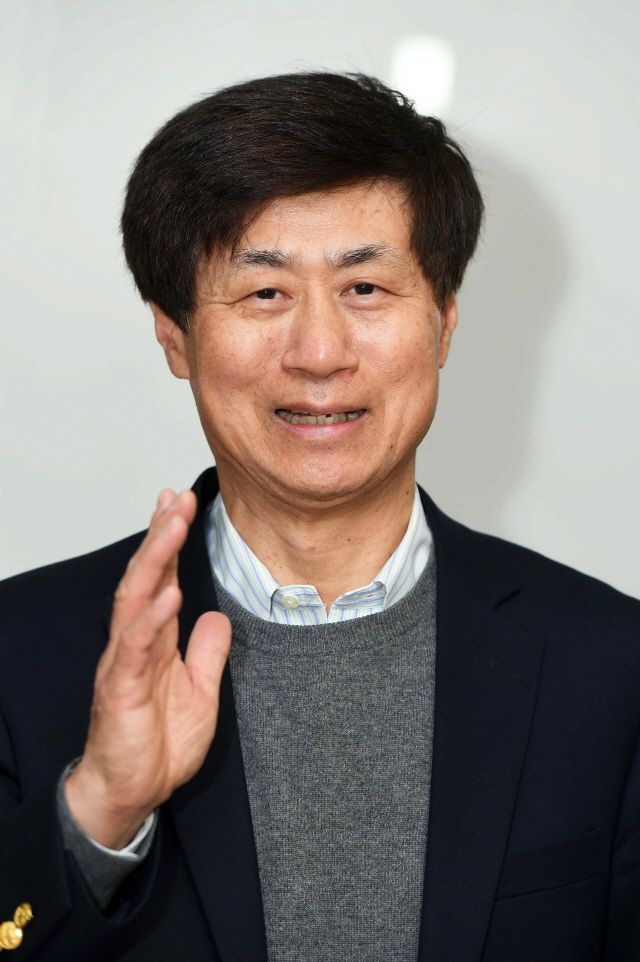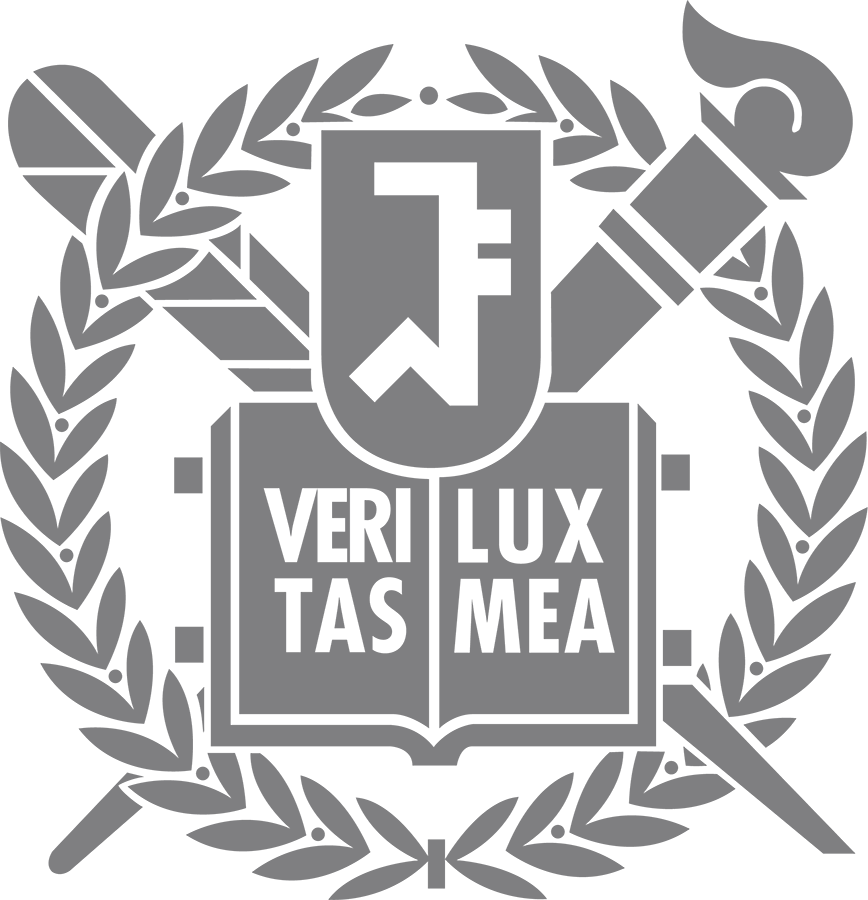Department News
[Seoul Economic Daily] Prof. Woo Il Lee, President-designate of KOFST
Prof. Woo Il Lee, President-designate of KOFST “4th Industrial Revolution
Marks Fundamental Change in Human History… Science and Tech Must
Be Pursued as Center of Government Projects”<?xml:namespace prefix = "o" ns = "urn:schemas-microsoft-com:office:office" />
’Scientist/Engineer of the Month’ Review Board Chairperson
Takes Over as KOFST Leader
Science and Tech Is Important in Times of Uncertainty
G2 Trade War Will Decide Who Leads 4th Industrial Revolution
KOFST Plans to Increase Collaboration with Industry

Professor Woo Il Lee(65·Photo) of Seoul National University Dept. of Mechanical and Aerospace Engineering has been selected as the next president of the Korean Federation of Science and Technology Societies (President: Dr. Myung-ja Kim). After the agreement procedure at the general assembly on Feb 27th, he will be officially appointed as president of KOFST in March 2020, serving a three-year term, presiding over 604 societies and organizations. Since the foundation of KOFST in 1966, candidates selected by the board and recommended to the general assembly have never been vetoed. KOFST has a tradition of electing the next president one year before the end of their current president’s term.
Prof. Lee met with the Seoul Economic Daily at the Korea Institute of Science and Technology Center in Yeoksam-dong, Gangnam-gu, Seoul on Feb 18. “With the advent of the 4th Industrial Revolution, science and technology has become a core strategy of state management, not just a means to economic development,” he spoke. “Some even assert that the US-China trade war is due to leading technology in the 4th Industrial Revolution like AI.” He believes that KOFST must represent the science and technology field in establishing government policies for science and technology, with its annual financial funding of over 20 trillion one in government R&D.
Prof. Lee has served as the Vice President at SNU, but failed twice to win at the presidential elections; last year, he finished second to current president, Se-jung Oh. Recently, he was recommended as the next president of KOFST at the latest board meeting, being chosen over Jong Hae Keum, President of the Korean Mathematical Society, who has also worked at the Korea Institute for Advanced Study. During last year’s SNU presidential elections, Prof. Lee emphasized the necessary of innovation in research administration, speaking: “Supporting a handful of individuals to ‘win the Nobel Prize’ is hardly going to work. It is much more important to create an environment where all researchers can pursue their work in stability.”
The president-designate stressed the importance of technology during the interview. “It’s practically impossible to live without smartphones now,” he explained. “But iPhones have only been around for 12 years, and the Internet for a little over 20 years. Now with 5G communication, we cannot predict what changes are coming next. We thought we could never cure cancer, but in the last 20 years the five-year survival rate has increased from 40% to 70%.” He said that science and technology is especially crucial in times of uncertainty and chaos, such as now.
“We should start worrying about the absence of new force for growth. We are also facing environmental and energy problems that have never been experienced before,” said Prof. Lee. “The development of information technology such as AI and biotechnology is greatly affecting the economy and society in general,” he said, emphasizing the necessity of scientists and engineers.
He also mentioned the importance of public diplomacy in science and technology in dealing with problems such as fine dust and infectious diseases. “To solve global environmental, health, and energy issues, science diplomacy is essential. KOFST will serve as an ambassador of science diplomacy, opening up channels for international cooperation.” In addition, he promised to share the science and technology experience with developing countries and lead future science and technology collaborations between South and North Korea.
He explained that KOFST must function as a platform for scientists and engineers to collaborate organically. “Until 1993, when the government R&D funding reached over 1 trillion won, the foundations for science and technology development had been sufficiently laid out. Now it is time for us to make sure the efforts come to fruition.” His idea is that new values and synergies must come from fusion and communication between various areas. “In this time of reformations, KOFST ought to provide a place for exchanges of people and knowledge, crossing boundaries such as science and technology, academia, industry, society, generations, and regions.” He also promised to make non-Seoul Capital Area a new center for science and technology innovation.
Prof. Lee pointed out that scientists and engineers must not be isolated from society. “Scientists and engineers have not done their job in communicating with the rest of society,” he said. “We must speak up on issues that are directly related to citizens’ quality of life, such as the fine dust problem.” He spoke about increasing collaborations with the industry such as hydrogen economy.
He promised to provide more opportunities for young scientists and engineers in KOFST. “In order to encourage young members to be active, we should provide support in areas like career development, start-up mentoring, and global symposium funding. Promoting youth interest in science will also be a crucial project.”
He explained that the reconstruction project of Korea Institute of Science and Technology Center (Science Plaza), which starts this spring and is to be completed in 2021, will be carried out according to innovation cluster and platform. The building was approved for reconstruction in 2016, but a major problem in structure design forced the current president, Myung-ja Kim, to reach the conclusion of redesigning after talks with KOFST members. For the last 2 years, President Kim has actively pursued projects related to social issues such as contriving innovation ideas for enhancing the results of government R&D industrialization, establishing research ethics, scientific solutions for analysis of fine dust and lowering its levels, reducing plastic use and recycling, and preparing for hydrogen economy.
Currently, President-designate Lee serves as the chairperson of the review boards for ‘Scientist/Engineer of the Month Award’ and ‘Scientist/Engineer of the Year Award,’ managed by the National Research Foundation of Korea and the Seoul Economic Daily and sponsored by the Ministry of Science and ICT. Jung-Hye Roe (SNU Professor), President of the National Research Foundation of Korea, and Eun-Kyung Suh (Chonbuk National University Professor), former President of the Korea Foundation for the Advancement of Science and Creativity, have also served as review board members for the awards. /by Kwang-bon Koh kbgo@sedaily.com Photo=Ho-jae Lee
he is..
△ Born 1954 in Seoul △Bachelor’s and Master’s from SNU Dept. of Mechanical Engineering △ PhD from University of Michigan, Dept. of Mechanical Engineering △Assistant Professor, Associate Professor, and Professor at SNU Dept. of Mechanical and Aerospace Engineering △ President of University Industrial Technology Force (UNITEF) △ Dean of SNU College of Engineering △ Vice President of the National Academy of Engineering of Korea △ SNU Vice President for Research △Feelsci Standing Representative △2017~ Vice President of KOFST
Link to article: https://www.sedaily.com/NewsView/1VFDIVVC23

